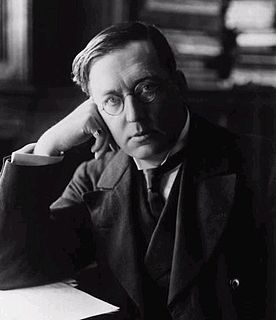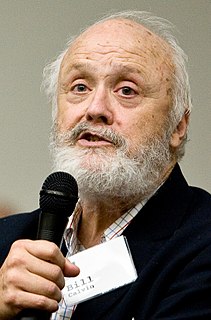A Quote by Bernard Bailyn
Whatever deficiencies the leaders of the American Revolution may have had, reticence, fortunately, was not one of them.
Related Quotes
Throughout American history, the political leaders have always exhorted the American people to be nice and quiet and leave things to them. But when very serious evils confronted the American people, they had to go beyond the Congressmen and Senators, and they had to commit civil disobedience and they had even to break the law.
I think that most people don't think in terms of an American revolution, they think in terms of a Russian revolution, or even a Ukrainian revolution. But the idea of an American revolution does not occur to most people. And when I came down to the movement milieu seventy-five years ago, the black movement was just starting, and the war in Europe had brought into being the "Double V for Victory" [campaign]: the idea was that we ought to win democracy abroad with democracy at home. And that was the beginning of an American revolution, and most people don't recognize that.
First, what is a revolution? Sometimes I'm inclined to believe that many of our people are using this word "revolution" loosely, without taking careful consideration [of] what this word actually means, and what its historic characteristics are. When you study the historic nature of revolutions, the motive of a revolution, the objective of a revolution, and the result of a revolution, and the methods used in a revolution, you may change words. You may devise another program. You may change your goal and you may change your mind.
But what do we mean by the American Revolution? Do we mean the American war? The Revolution was effected before the war commenced. The Revolution was in the minds and hearts of the people; a change in their religious sentiments, of their duties and obligations ... This radical change in the principles, opinions, sentiments, and affections of the people was the real American Revolution.
In comparison to the French Revolution, the American Revolution has come to seem a parochial and rather dull event. This, despitethe fact that the American Revolution was successful--realizing the purposes of the revolutionaries and establishing a durable political regime--while the French Revolution was a resounding failure, devouring its own children and leading to an imperial despotism, followed by an eventual restoration of the monarchy.
The family I'm from, well, no one had their name on big buildings. My family were builders of a different kind. Builders in the way most American families are. They used whatever tools they had - whatever God gave them - and whatever life in America provided - and built better lives and better futures for their kids.
Whatever the country, capitalist or socialist, man was everywhere crushed by technology, made a stranger to his own work, imprisoned, forced into stupidity. The evil all arose from the fact that he had increased his needs rather than limited them; . . . As long as fresh needs continued to be created, so new frustrations would come into being. When had the decline begun? The day knowledge was preferred to wisdom and mere usefulness to beauty. . . . Only a moral revolution - not a social or political revolution - only a moral revolution would lead man back to his lost truth.
The leaders I met, whatever walk of life they were from, whatever institutions they were presiding over, always referred back to the same failure something that happened to them that was personally difficult, even traumatic, something that made them feel that desperate sense of hitting bottom-as something they thought was almost a necessity. It's as if at that moment the iron entered their soul; that moment created the resilience that leaders need.
In the long run, we will need many more African-American, Latino, and Native American leaders, and leaders from low-income communities, who can bring additional insight and a deeply grounded sense of urgency, and who are the most likely to inspire the necessary trust and engagement among students' parents and community leaders.
A revolution is bloody, but America is in a unique position. She's the only country in history in a position actually to become involved in a bloodless revolution. The Russian revolution was bloody, Chinese revolution was bloody, French revolution was bloody, Cuban revolution was bloody, and there was nothing more bloody then the American Revolution. But today this country can become involved in a revolution that won't take bloodshed. All she's got to do is give the black man in this country everything that's due him, everything.






































